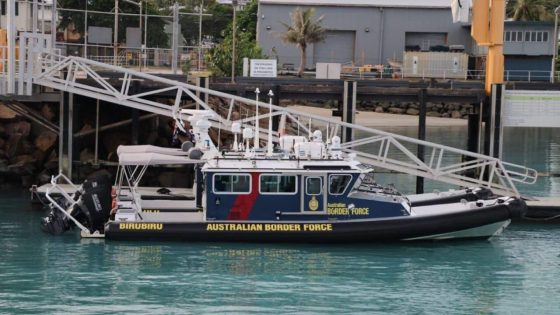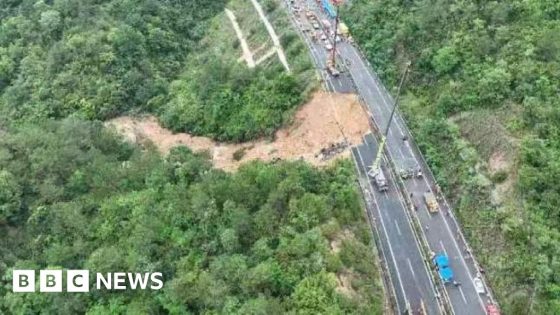A Federal Member is demanding answers over an incident where the Australian Border Force asked civilians to assist in a search and locate for unlawful arrivals in the Torres Strait.
It’s prompted calls from the region’s federal body, the Torres Strait Regional Authority, to ensure that the government’s $1.2 billion dollar Home Affairs budget bolsters border security in the region.
TSRA Chair Pedro Stephen said the people of communities of the Torres Strait are directly affected by incursions suffered at the border and should be resourced appropriately.
“When there’s a movement of people between two countries … there’s always going to be high risk,” he said.
Earlier this month, NITV revealed that the Australian Border Force paid fishermen a drum of fuel to search for and apprehend five unlawful arrivals believed to be from Senegal in West Africa.
There is no ABF vessel located on Saibai and the fisherman used their personal dinghies.
The Federal Member for Leichhardt, Warren Entsch, has slammed the decision and said he had written to the Home Affairs Minister, Clare O’Neil.
“Why would you put local civilians at risk?” said Mr Entsch.
“Civilians should not be put into that situation at all, we pay the trained authorities to do it.
“You can’t suggest substituting a purpose-built Border Force vessel for an aluminium fisherman’s dinghy and say that’s OK – it’s not OK.”
Mr Entsch said he attempted to contact the Australian Border Force over the incident but had not received a response.
ABF rife with cultural issues: Australian Human Rights Commission
Earlier this month, the Torres Strait Islander Regional Council (TSIRC) told NITV there had been a breakdown in the relationship between the ABF, other agencies and their communities.
It comes as the ABF has come under fire after a ‘secret’ report by the Human Rights Commission revealed the unit is rife with culture issues.
Two documents were published as part of the report on April 30, with one being focused on the ABF’s Marine Workforce, surveying at least 70 staff across the Darwin, Thursday Island and Cairns offices.
“The marine unit exhibits a high prevalence of inappropriate workplace behaviours, including sexual harassment and bullying, which demand immediate intervention,” the Marine Deep Dive Project Summary Report reads.
“These issues pose a significant safety risk for officers and an institutional risk for the ABF. Achieving a positive culture within the marine unit is contingent on the effective prevention and response to these behaviours.”
The Minister from Home Affairs, the Hon Clare O’Neil has not yet responded to the report, or requests made by NITV.
Use of local police liaison officers in ABF operations ‘tokenism’
ABF staff with compliance powers are based in Cairns and Thursday Island, while staff on Saibai, just 4km from PNG, have no powers.
NITV understands there are currently three full time staff ABF based on Thursday Island, and 10 Border Monitoring Officers (BMO) based on outer islands who do not have compliance powers.
The rest of the unit’s team are understood to be based in Cairns, 800 kilometres away.
A spokesperson for the Queensland Police Service said there are 27 full time Torres Strait Island Police Liaison Officers (TSIPLOs) based across the region, who can report crimes but cannot make arrests, carry a weapon or confiscate illegal items.
The Federal Member for Leichhardt said there had long been calls to give compliance powers to local people employed by various government authorities in the region.
“What is even more bizarre here, we rely very heavily on the surveillance by the local community, they know who should and shouldn’t be there,” Mr Entsch said.
“Almost every single apprehension, since I’ve been a member, 28 years, has been a direct result of cooperation between local community and the various officials.
“[Yet local staff] haven’t even got the authority to talk to somebody, let alone arrest.
“They’re walking around with uniforms with Mickey Mouse badges on [and] to me, it’s just tokenism.”
In a statement to NITV, a spokesperson for the ABF said it does not seek the support of local communities for patrol or search activities.
“The ABF does, however, rely on local communities to report suspicious behaviour through established avenues such as Border Watch or directly to its Border Monitoring Officers (BMOs) ,” the spokesperson said.
“In matters related to preservation of life, if a member of the public comes to us with information that requires an urgent response, it is possible and proper that all parties present may work together with available resources to respond swiftly.
“The ABF surges resources onto Saibai Island as required, which has in recent months seen a small number of additional officers working out of the joint facility alongside the existing BMOs.”
Calls for better resources in federal budget
Currently ABF vessels are based out of Thursday Island and can take 5-8 hours to reach Saibai, if weather permits.
Mr Entsch said he’d also called on the Minister to resource Saibai with a vessel.
“We have a situation now where not only are the authorities not giving our frontline Liaison Officers any authority, they’re now calling on local public that have got no training whatsoever in this to bring out the dinghies and not only to look for them, but actually apprehend them,” he said.
“Where are the millions of dollars we spend on specialised vessels for it?”
May’s federal budget saw a $569.4 million dollar boost to the capabilities that underpin border security, including boats, planes and vehicles.
Further, $52.6 million has been allocated over two years to address illegal fishing.
The Torres Strait Regional Authority’s Chair Pedro Stephen AM said it was crucial that local communities were included in conversations about resources and funding.
“Whilst I’m grateful that the budget talks about the international border [issue] – how does it happen on ground?” he said.
“Our job is to continue to lobby government and to make our community aware of that.”



